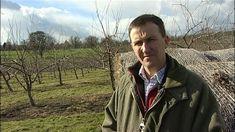
Clive Baxter, one of the industry’s most respected top fruit leaders, is to resign from his role with the Horticultural Development Council (HDC) before the new levy board structure comes into place next year.
He said there has been no business plan as to whether the new structure will work.
The whole problem occurred in his view because one levy board - the Meat and Livestock Commission (MLC) - was costing the government too much money. Rosemary Radcliffe was then asked to review all the five levy boards.
“But the solution to their problem was to effectively merge levy boards that were operating well on their own. So rather than fixing the problem within the MLC, they ended up dismantling the other levy boards.” Baxter told Commercial Grower.
“Now they have got to rebuild in the next five years just to serve one purpose. This is utter madness,” he added. “With no business plan, there was no evidence to show that what Rosemary Radcliffe had assumed in terms of savings, would be a reality.
“I think this is shocking. I have chosen not to stand on the new HDC. I will be resigning, because we have spent the last two years of council meetings trying to sort out how we are going to cope with the changes to the HDC,” he added. “Now we know it will happen.”
Baxter said the top fruit panel had not spent any time over this period on research and development. “It has been just an afterthought we have just managed to fit in,” he said.
He was not prepared to spend the next two years at least coping with being dismantled, and having to re-assemble itself, when it ran perfectly smoothly anyway. “It is tragic,” he added.
He wanted to pay tribute to Colin Harvey, HDC’s chairman. The HDC is in the strong position it is in now in no small part to him, he stressed. Baxter is certain that if the HDC is now left alone by government, it would recover, because it is doing a good job.
He felt the tragic point in this case was that they would lose many good staff that would not, or could not for many reasons, move to Stoneleigh.
Now that the decision has been taken, he understood the decision to go on a single site, but Stoneleigh is by no means the ideal place.
“First of all, who is going to go to Stoneleigh for meetings, because it is so inconvenient to get to except by car, with roads becoming increasingly crowded,” said Baxter.
According to John Bridge, the decision whether panel meetings, which presently take place at East Malling, could continue, will be the decision of Neil Bragg.



